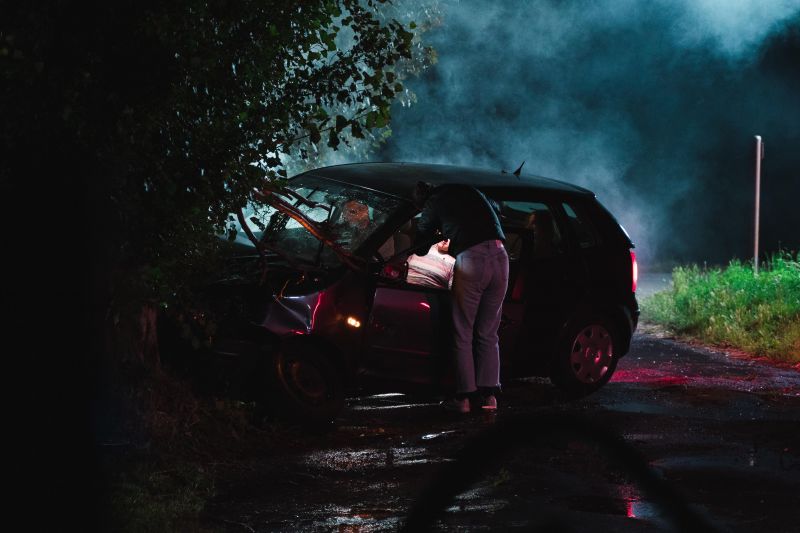More people died on roads in New South Wales, Queensland, South Australia and Victoria in 2023 than in the year before, dragging up the national road death toll.
The Department of Infrastructure, Transport, Regional Development, Communications and the Arts has published the Australian Road Deaths Database report, which recorded 1266 deaths relating to road incidents in the 2023 calendar year.
South Australia recorded the highest increase in road deaths, up 64.8 per cent with 117 deaths in 2023 compared to 71 deaths in 2022.
The Australian Capital Territory recorded the largest decrease in road-related deaths at 77.8 per cent. It only recorded four deaths relating to road incidents throughout 2023.
| State | 2023 recorded death toll | 2022 recorded death toll | Difference |
|---|---|---|---|
| New South Wales | 351 | 281 | +24.9 per cent |
| Victoria | 294 | 240 | +22.5 per cent |
| Queensland | 277 | 297 | +22.5 per cent |
| South Australia | 117 | 71 | +64.8 per cent |
| Western Australia | 158 | 175 | -9.7 per cent |
| Tasmania | 34 | 51 | -33.3 per cent |
| Northern Territory | 31 | 47 | -34.0 per cent |
| Australian Capital Territory | 4 | 18 | -77.8 per cent |
| Total | 1266 | 1180 | 7.3 per cent |
The report from the government also provides a more detailed look at when fatal crashes occurred and who was affected.
48 per cent of deaths recorded were drivers, while 20 per cent were motorcyclists, 16 per cent were passengers and 12.5 per cent were pedestrians.
304 women were killed over the 12 months, while the report recorded 956 male deaths. 792 deaths occurred during weekdays and 474 victims were killed over a weekend.
A majority of fatal car crashes occurred during the day with 785 recorded deaths, and 481 people died as a result of crashes that occurred at night.
Looking at age groups, people aged 40-64 years old were the most represented in the road toll with a total of 387 fatalities.
A total of 326 people died in major cities across Australia, with 581 deaths in regional Australia and 63 in remote or very remote parts of the country.
June 11, 2023, saw the largest fatality count over any other day in 2023 with 13 deaths recorded, while January 10 saw the highest recorded crash rate with 10 fatal incidents reported.
The total of 1266 road deaths were the result of 1158 crashes in total in 2023.
Out of 1266 deaths, 490 victims were involved in multiple-vehicle road incidents, whereas 776 people who died were involved in single-vehicle crashes.
New South Wales recorded the highest death toll of single-vehicle crashes, whereas Victoria recorded the most deaths involved in fatal multi-vehicle incidents.
| State | Multiple vehicle fatal crashes | Single vehicle fatal crashes |
|---|---|---|
| New South Wales | 144 | 207 |
| Victoria | 152 | 142 |
| Queensland | 128 | 149 |
| South Australia | 23 | 94 |
| Western Australia | 12 | 146 |
| Tasmania | 15 | 19 |
| Northern Territory | 14 | 17 |
| Australian Capital Territory | 2 | 2 |
| Total | 490 | 776 |
The Australian Automobile Association (AAA), which represents the NRMA, RACV and other motoring clubs, has stepped up its campaign for state and territory governments to share their road and crash data – or lose access to the annual $10 billion infrastructure fund paid for by federal tax revenue.
The core issue, the AAA says, is that while Australia’s states and territories collect important data related to every road death or serious injury – driver behaviour, the number of people involved, licence status, possible cause, weather and road condition – this data is not reported into a central source for experts to assess.
“You can’t manage what you don’t measure, and when it comes to road trauma, the Australian Government measures very little,” said AAA managing director Michael Bradley, pointing out the difficulty of assessing how effective road crash mitigation measures actually are.
The AAA says its Data Saves Lives campaign is supported by 17 national organisations representing motorists, motorcyclists, truckers, pedestrians, doctors, insurers, road engineers and safety advocates, and that its proposals have been endorsed by all federal Liberal, National, Greens and Teals MPs.

